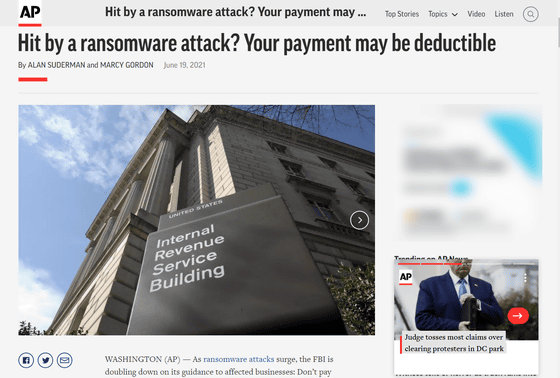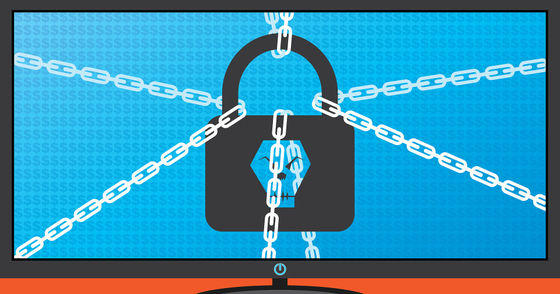Ransomware payments may be subject to 'tax deductions' in the United States

Cyber attacks using 'ransomware' that forcibly restrict access to the system and demand a ransom have been increasing in recent years, including the largest oil pipeline in the United States,
Hit by a ransomware attack? Your payment may be deductible
https://apnews.com/article/technology-business-government-and-politics-d8c1e9958ad1e89eab83f44e6ca70a94

The Cybersecurity 202: Legal scholars are working on new rules for international hacking conflicts --The Washington Post
https://www.washingtonpost.com/politics/2021/06/21/cybersecurity-202-legal-scholars-are-working-new-rules-international-hacking-conflicts/
Here's why paying ransomware hackers might actually not be that bad | TechRadar
https://www.techradar.com/news/heres-why-paying-ransomware-hackers-might-actually-not-be-that-bad
Tax accountants and accountants have revealed to the Associated Press that although there is no official guidance on ransomware ransom payments, victims can account for the damage as 'ordinary and necessary expenses.' ..
However, the Associated Press report uses the phrase 'ransomware ransoms are'potentially'tax deductible,' and the statement 'tax deductible' is avoided. This is officially answered by the Internal Revenue Service (IRS), which controls the enforcement and collection of federal taxes, saying, 'If you announce that your ransom is tax deductible, you will give the company an incentive to pay the ransom.' The reason is that he is refraining from.
In a May 2021 Colonial Pipeline incident, a ransomware attack shut down the company, resulting in a five-day cutoff on the east coast of the United States, causing a depression due to the exhaustion of gasoline. It was . As the case shows, a ransomware attack could hurt not only the victims, but society as a whole, but the FBI director said, 'You shouldn't pay the ransom.' It is clearly stated , and the official US government treats it as 'payment of ransom is not recommended'.

From the above circumstances, the Associated Press only expresses that 'ransom payments may be tax deductible', but 'the ransom paid by the insurance company is not tax deductible'. , Also describes specific precautions when filing. An IRS spokesman said, 'We are aware of the tax deductions for ransomware payments and are investigating them.'
Related Posts:
in Security, Posted by darkhorse_log







